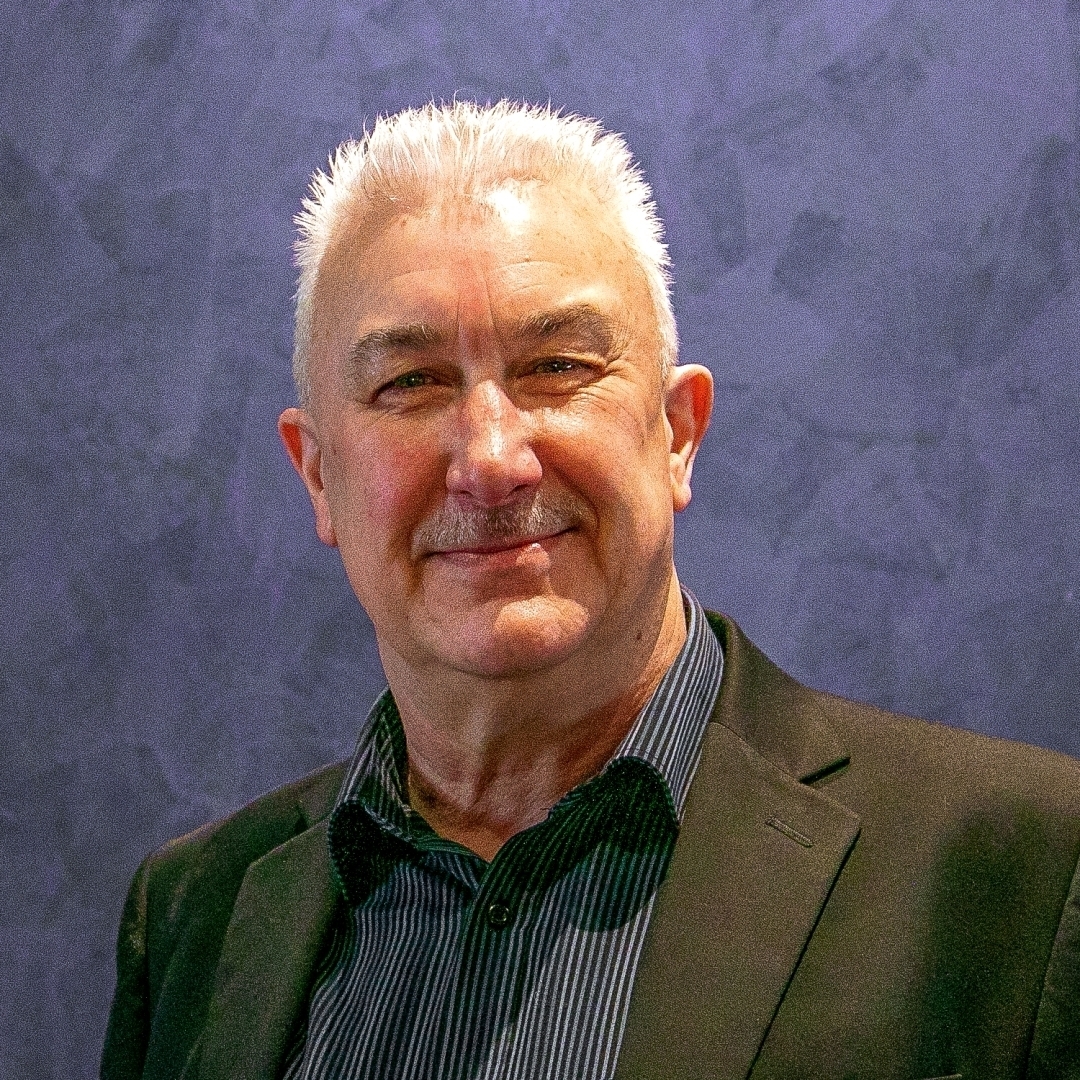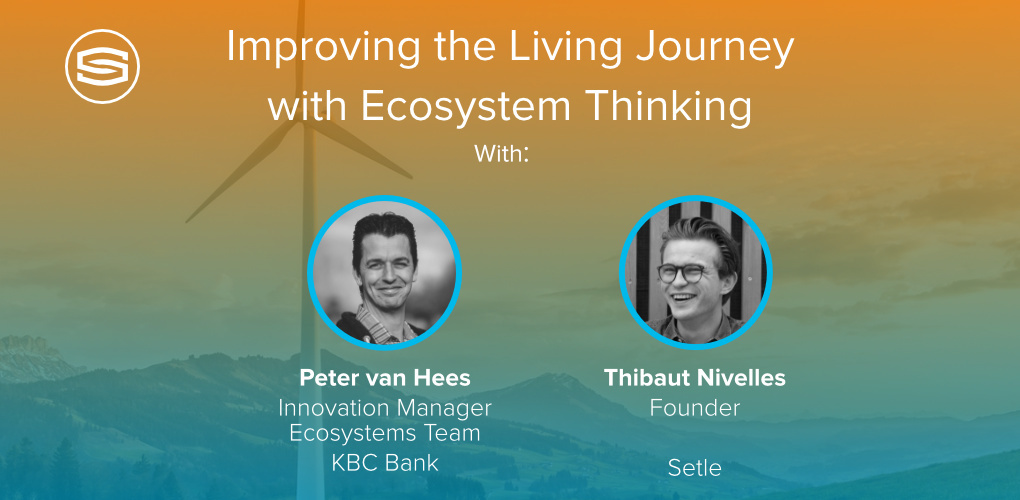
Insights & Opinions
Improving the Living Journey with Ecosystem Thinking
Mon, 05 Jun 2023


"How does a SaaS company, that started out as a Proptech, become a Fintech force for good with a focus on sustainability?". This was the first of many questions I was curious to learn the answer to when we invited Thibaut Nivelles, Founder of Setle, and Peter van Hees, Innovation Manager Ecosystems Team at KBC, as our guests on The Breakout Bites on 1st June.
Thibaut isn't your typical techie SaaS company founder. In fact, he says:
"Before Setle, I didn't even have a proper relationship with a laptop in general!" (Thibaut)
Thibaut's background is in construction, renovation and real estate. During his years spent across those industries, he identified many opportunities for improvement, which gave him the idea for Setle.
The problem
When most people are considering home renovation projects, they have very little idea of how much it should cost. His research showed that most typically, people will get 3 quotes and very often select the one in the middle in terms of price, believing that the lowest one must somehow be cutting corners and perhaps the highest one is ripping them off. There is no science behind this decision; it's just human nature.
With the increasing EU regulations regarding the energy efficiency of homes, more and more people are required to renovate in order to meet the new energy standards on a continuing basis. Thibaut pointed out that it is estimated only 5% of Belgian homes are able to meet future energy requirements.
With global energy prices at an all-time high, a home's energy efficiency has become a major consideration in the purchase decision. But how can you estimate the budget to cover energy-efficient renovation costs BEFORE buying a house?
The solution
Thibaut set out to provide transparency to homeowners and potential home buyers with little or no knowledge of the construction industry, helping them by making it easy to read and compare quotations to an industry benchmark of what their renovations should cost.
He started Setle as a B2B offering to real estate agents, so that they could help their customers make better (and faster) decisions about buying a home. The customer can select a property and add any additional information in the app in terms of current construction and the existing EPC rating if available.
(As a complete aside, I personally did not know my house could or should have an EPC rating. We've been living in it for over 20 years, and energy certificates weren't something to be considered back then!)
Setle works with a large number of construction companies who willingly share the data on renovation quotations and pricing. This enables Setle to calculate a benchmark price report for any energy efficiency renovations customers plan to carry out and immediately indicate the impact on the EPC rating.
They also employ a team of construction specialists that can investigate quotations that appear to be way off the benchmark so that the data isn't skewed by any outliers. Customers can also use the report to negotiate with contractors.
As a result, the Setle app and ecosystem not only help the customers make a decision, they can also guide them into making even better decisions.
The fintech angle
So what led KBC to invest €1.5 million in Setle?
Of course, most people would need a loan in order to carry out their renovations. This led Thibaut to approach KBC to find out what APIs they could use to show customers the kind of green loans or mortgages they could access, which is where Peter entered the picture.
Peter actually wears 2 hats. Not only is he the Innovation Manager of the Ecosystems Team at KBC, he has also taken on the role of Chief Product Officer at Setle.
"When I looked at Setle, I didn't see a Proptech; I saw a data company" (Peter).
He instantly saw the impact that Setle could have on improving the lives of KBC's customers.
KBC already offered green mortgages and green loans. From a risk perspective, one of the problems for them was figuring out if the requested mortgage or budget for improvements proposed by the customers was reasonable or would have the desired impact on energy efficiency.
The old way of doing things was to require an investment document and formal quotations from contractors. Even then, nobody in the bank really had any knowledge of how this compared to the market.
Setle uses real-time market data and generates reports at a highly personalised level. Obviously, the renovation costs of a property in a big city will be quite different to one of similar construction in a small town or rural area. Setle has all the relevant data to provide a high quality report based on many factors, including regional location data.
Integrating Setle into their banking app guides KBC's customers throughout the decision-making process. KBC then instantly accepts the report generated by Setle at the end to make a loan decision. No more waiting for 6 weeks to get multiple contractors out to provide a quote.
At this point, Setle is the only known digital product in the EU whose output is accepted by a growing number of banks at the same level as a quotation. Peter pointed out that this was the result of a lot of time, blood, sweat and tears spent talking to risk departments in banks - no easy feat!
The vision is to take the app to the next level by enabling customers to create a full "digital twin" of their house to provide even further insights, for example, by connecting their energy accounts for real-time updates to see the impact of their investment.
Interestingly, Peter said that very often, immediately after making energy-efficient renovations to their property, the customers see their energy bills increase!!! He said this is because people think "Well the house is well insulated now, so we will turn the heating up".
It's human nature at play once again.
This is why he believes that even after the renovations are complete, Setle needs to continue to help them improve their energy efficiency by providing insights, further improvement suggestions and encouraging behavioural change.
The Ecosystem
What started out as a SaaS solution for real estate agents has grown into an ever-expanding ecosystem that encompasses real estate brokers, construction companies, home buyers/renovators and government agencies.
Lauran Potie, Head of Enterprise Sales and Partnerships at Setle, was in the audience and informed us that they are currently pursuing partnerships with The European Mortgage Federation, Enterprise Europe Network, Flanders Investment & Trade and more. They are also leveraging their connections within the banks in Belgium and the Netherlands to investigate offering their service to customers across the EU.
Managing multiple stakeholders' (sometimes conflicting) priorities within an ecosystem is tricky, but focusing on solving meaningful problems for each segment has worked so far for Setle. As they expand the ecosystem and scale the product, they will continue to look for ways to integrate their product into the core of their customers' business models.
Conclusion
With global sustainability targets looming and regulation regarding the energy efficiency of residential housing becoming increasingly stricter, homeowners and home buyers will be forced to take action.
Setle stands out as a fintech force for good, helping customers navigate a complex area in the single biggest investment most of them will ever make in their life - their home.
I look forward to the next chapter of their journey.


